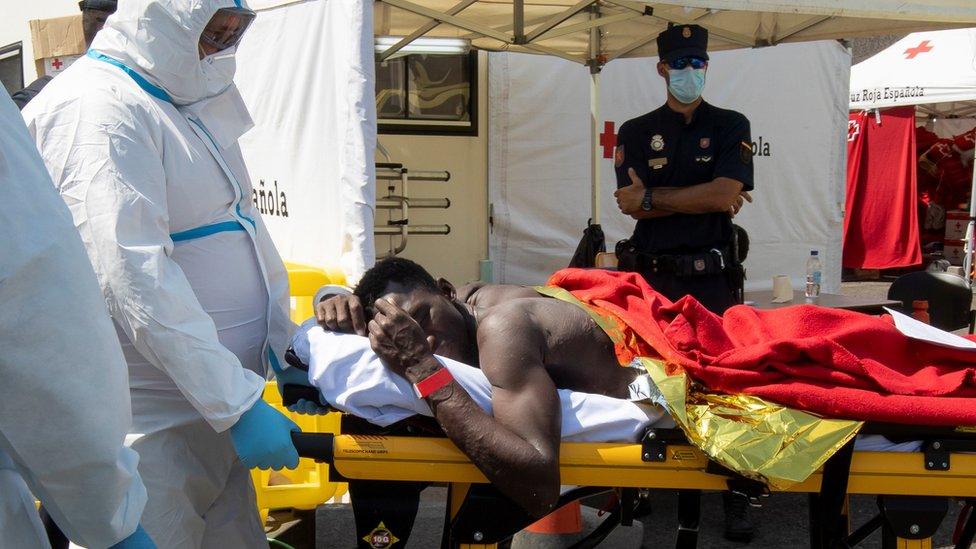Migrant crisis: Hundreds evicted from Gran Canaria port as arrivals surge
- Published
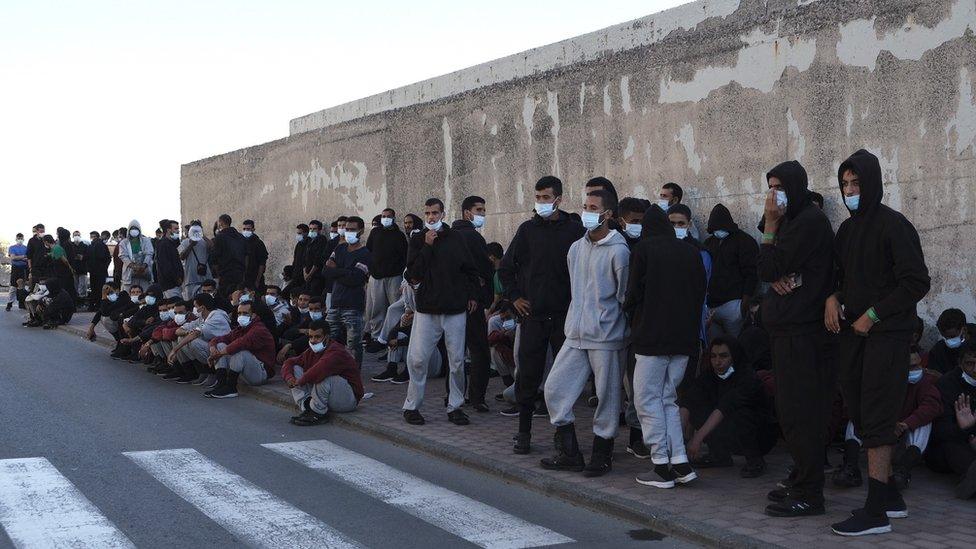
Hundreds were left without food or a place to go, local officials said
Hundreds of migrants have been removed by police from a crowded dock in Spain's Canary Islands, following a sharp rise in the number of people arriving there from Africa.
A group of 225 people were evicted from the Arguineguín port in Gran Canaria on Tuesday, but thousands still remain.
It follows protests over conditions at the port, which an immigration judge earlier described as "inhumane".
A total of 16,700 migrants have reached the Canary Islands so far this year.
That is a rise of more than 1,000% on the same period last year, according to official data seen by the Spanish public broadcaster RTVE.
More than half of this year's arrivals took place over the last month, the data shows. The island chain is just 100km (60 miles) off the coast of North Africa.
Police evicted the migrants from the emergency camp at Arguineguín on Tuesday, and video showed many of them wandering around the small fishing village. The move was instigated by the national government, and local authorities were quick to criticise the plan.
"The [migrants] have been left without food, drink or [a] destination to go to," one local official told the Efe news agency.
Shortly after their removal, the island authorities arranged buses to take the migrants to a reception facility in the capital city Las Palmas de Gran Canaria. Many of the arrivals are believed to be young men from Morocco and the country's consulate is in the city.
The eviction exposed apparent tensions between the authorities on the island and the Spanish government in Madrid over how best to respond to the recent spike in migrant arrivals.
"We denounce this continued contempt for migrants and this island by the Ministry of the Interior," the island's president Antonio Morales wrote on Twitter. "We demand the resignation of those responsible."
"Migrants cannot be put on the street without any type of accommodation or food," a statement from the Unified Police Trade Union said.


The government in Madrid is investigating how the decision to evict the migrants was made, sources at the interior ministry told the El País newspaper.
The route from West Africa to the Canary Islands has grown in popularity since 2018. A previous peak, in 2006, saw 35,000 migrants arrive in the archipelago, the UN says.
Last month at least 140 migrants bound for Europe drowned after a boat carrying about 200 people sank off the coast of Senegal. The boat caught fire and capsized shortly after leaving the town of Mbour, the International Organization for Migration (IOM) said.
It is believed the migrants were attempting to reach mainland Europe via the Canary Islands.
- Published12 November 2020
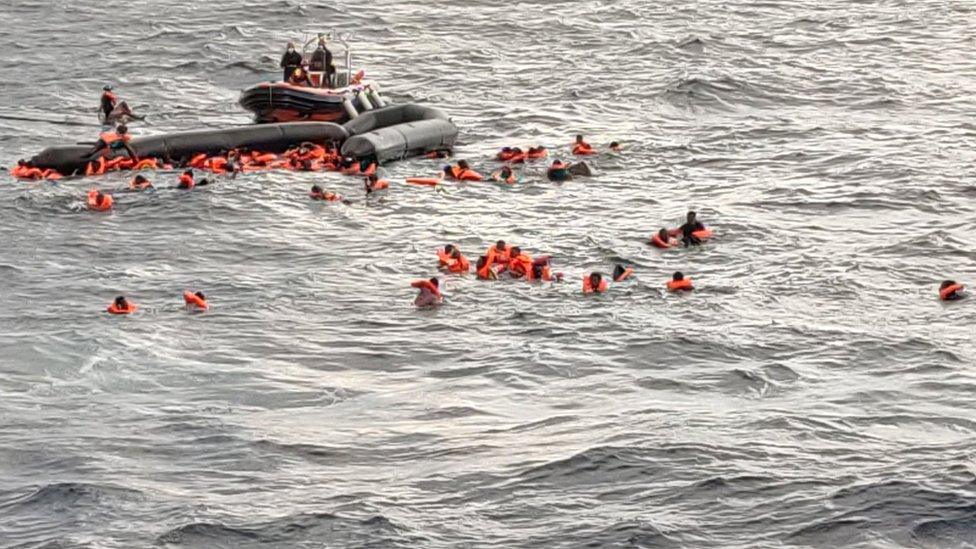
- Published8 November 2020
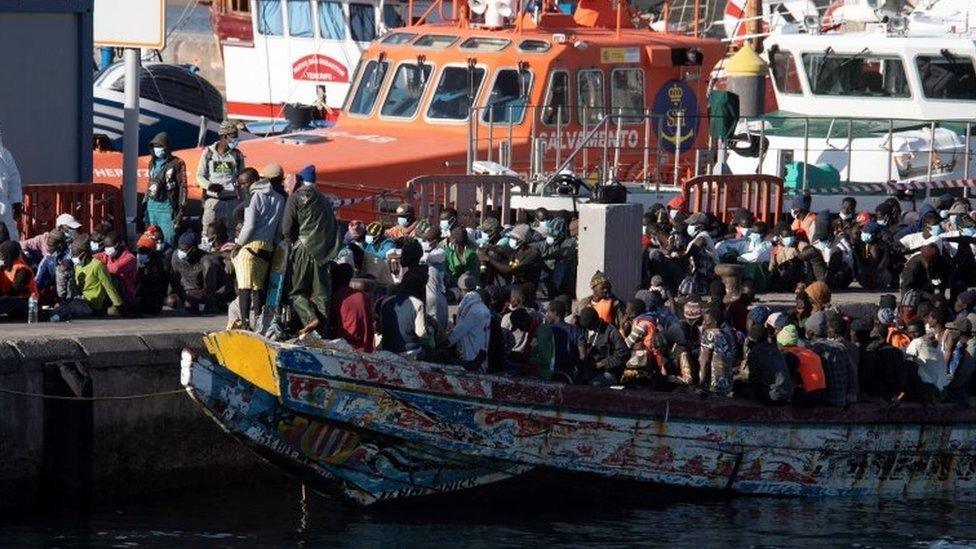
- Published29 October 2020
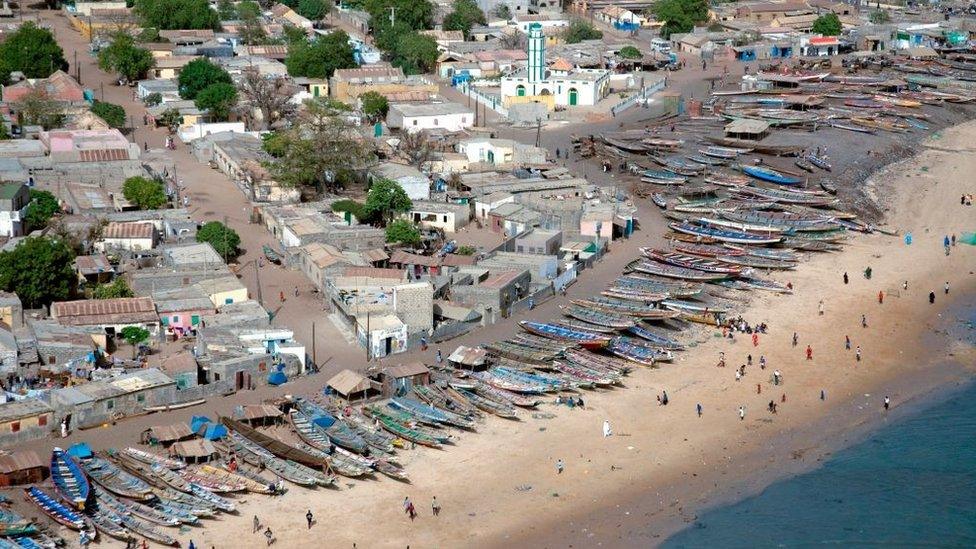
- Published10 October 2020
